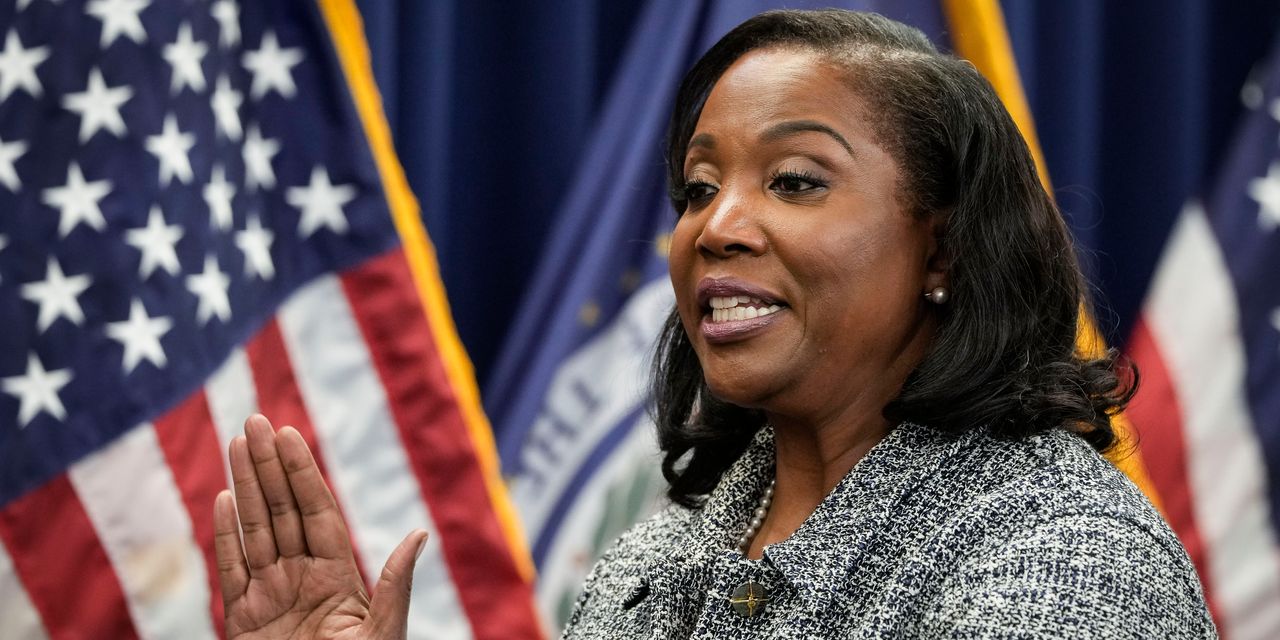Following the failures of several banks earlier this year, Federal Reserve officials have doubled down on the stability of the U.S. banking system. But with additional rate hikes forecast and capital requirements under review, at least one official sees further credit tightening within the banking sector as a downside risk for the U.S. economy.
Speaking about the economic outlook for the third- and fourth-quarter outlook for the U.S., Federal Reserve Gov. Philip Jefferson said he’s carefully monitoring the possibility of additional tightening from the banking sector with respect to credit conditions. “It represents a downside risk for the economy and I’m watching that very carefully,” Jefferson said Tuesday during a Senate Banking hearing on his nomination to serve as the vice chairman of the central bank’s board of governors. Jefferson is currently a member of the Board of Governors.
Liquidity risk and interest rate issues are additional concerns to U.S. financial stability, along with the potential rapid flight of deposits in banks that have a structure where they depend on a large share of uninsured deposits, Jefferson added.
When Sen. Tim Scott (R., S.C.) asked whether higher capital standards would be appropriate for banks following the failures of Silicon Valley Bank,
Signature Bank,
and First Republic, Jefferson said he favored a “measured, tailored approach” to regulation.
Scott’s question comes as Vice Chair Michael Barr testified in the wake of the
SVB
collapse that “weaknesses in regulation and supervision…must be addressed,” and has long pushed for stricter capital requirements. Earlier this month, The Wall Street Journal reported that officials were preparing a proposal that would seek to raise overall capital requirements by 20% at larger banks.
“As we think about capital requirements, I will always be thinking about that trade-off between making banks more resilient and sound, and credit availability. We don’t want to prohibit the banks from doing their vital role in the economy, which is allocating credit,” Jefferson said. “We want a banking system that is sound and resilient so that banks are able to live throughout the cycle.”
Banking rules shouldn’t be a one-size-fits-all approach either. “Regulation should be set at a level that’s consistent with the level of risk of the institution,” Jefferson said. Community banks, for instance, are less complex than large banking institutions and therefore the regulatory burden should be “substantially less,” he added, saying finding the right level of regulation to make sure that smaller and midsize banks are safe and sound is the key to consumer confidence.
Gov. Lisa Cook—who is nominated for a full, 14-year term on the board after being confirmed to fill an unexpired term last year—echoed Jefferson’s perspective at the hearing and acknowledged that “tailoring” is needed when it comes to regulatory oversight. “I wouldn’t want small, community banks to be burdened with the regulation that we see for larger institutions,” Cook said.
When questioned by Sen Bill Hagerty (R., Tenn.), Cook said she had not received a draft of Barr’s updated capital requirements proposal and added that the holistic review was not yet complete.
Write to Megan Leonhardt at [email protected]
Read the full article here




